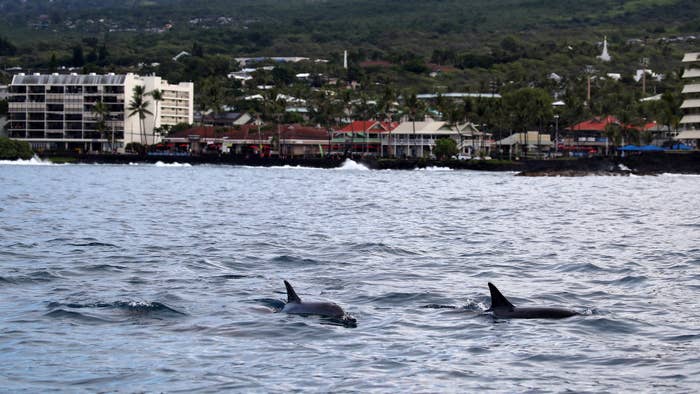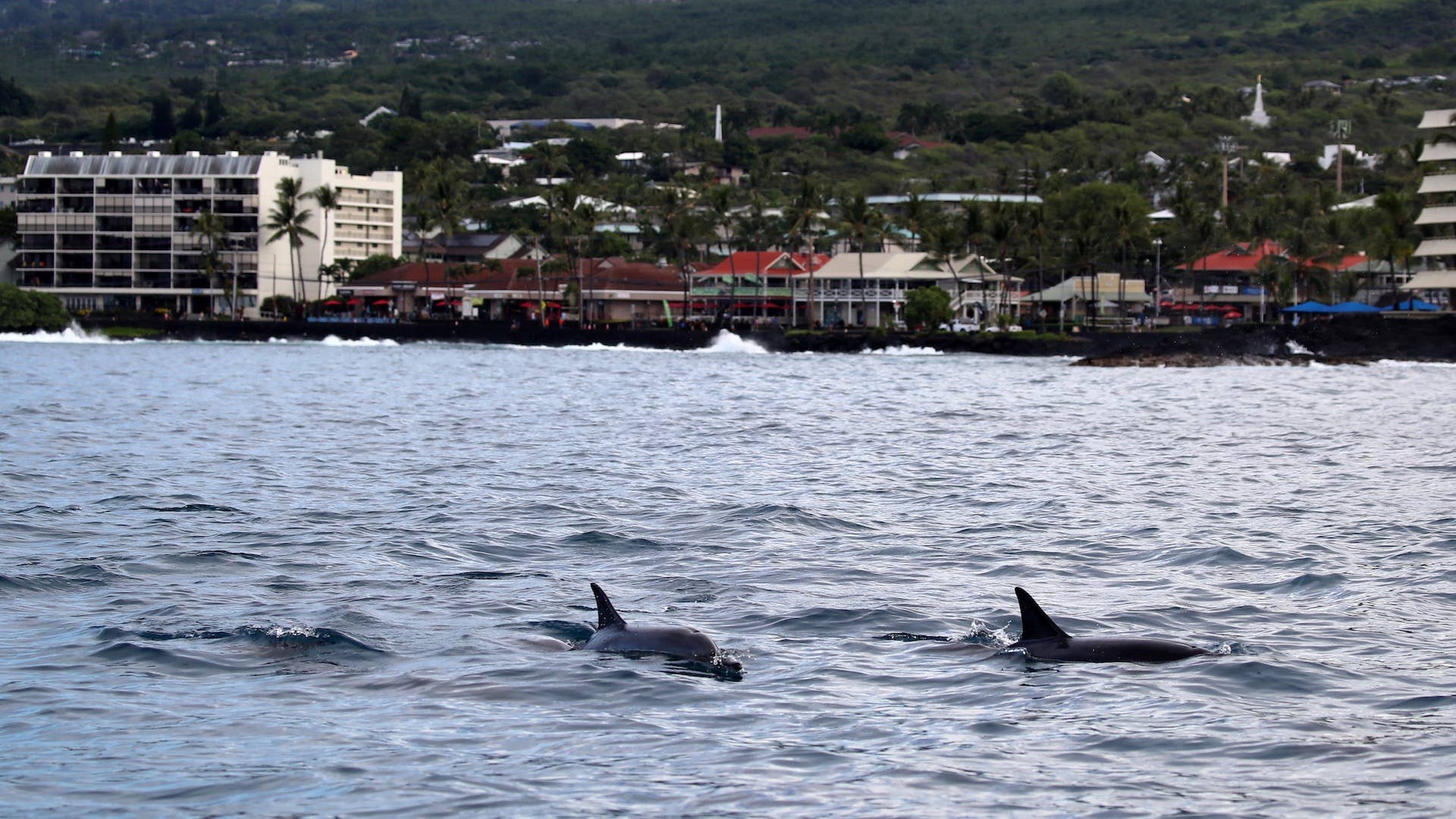
Dozens of swimmers are facing prison time for the alleged harassment of spinner dolphins.
Hawaii’s Department of Land and Natural Resources announced the probe in a Tuesday press release, which was accompanied by drone footage of the purported March 26 crime. The agency said the video and photographs captured 33 individuals swimming off Hōnaunau Bay, as they were “aggressively pursuing, corralling, and harassing the pod” of mammals.
DLNR said officers alerted the swimmers, who have not been publicly identified, of their violations while they were still in the water. The suspects eventually returned to land and were met by uniformed law enforcement.
According to NBC News, a 2021 amendment to the Marine Mammal Protection Act prohibits swimmers from getting within 50 yards of spinner dolphins that are within 2 nautical miles of the Hawaiian shoreline and other designated waters. The National Oceanic and Atmospheric Administration the federal law distinguishes two levels of harassment: one covers “any act of pursuit, torment, or annoyance” that may injure a sea mammal, while other refers to “acts that have the potential to disturb the animals’ everyday activities, such as sleeping, eating, or breeding.
The outlet points out that spinner dolphins often appear to be awake during their sleep cycles. This is because only one half of their brain gets rest, while the other half is used to help them move through waters. The NOAA says disturbing sleeping spinner dolphins can result in various health and reproduction issues, and may cause the mammals to get aggressive.
Officials have not confirmed what kind of penalties the swimmers will face, but according to NBC News, federal guidelines say violations of the Marine Mammal Protection Act can lead to fines of up to $11,000 or up to a year in prison.

